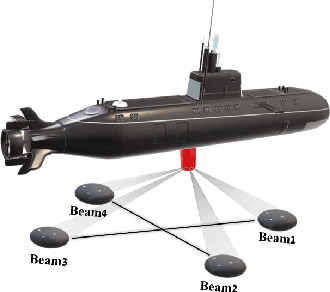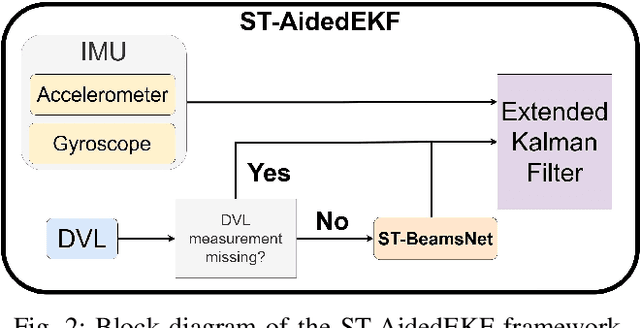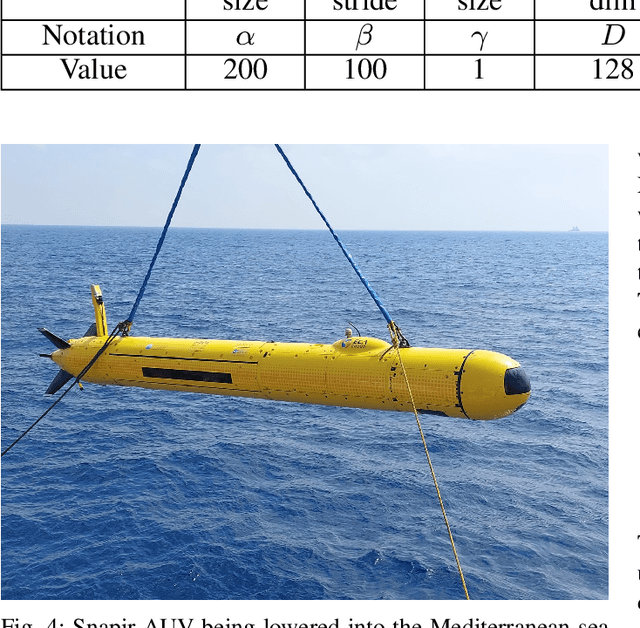Transformer-Based Robust Underwater Inertial Navigation in Prolonged Doppler Velocity Log Outages
Paper and Code
Apr 10, 2025



Autonomous underwater vehicles (AUV) have a wide variety of applications in the marine domain, including exploration, surveying, and mapping. Their navigation systems rely heavily on fusing data from inertial sensors and a Doppler velocity log (DVL), typically via nonlinear filtering. The DVL estimates the AUV's velocity vector by transmitting acoustic beams to the seabed and analyzing the Doppler shift from the reflected signals. However, due to environmental challenges, DVL beams can deflect or fail in real-world settings, causing signal outages. In such cases, the AUV relies solely on inertial data, leading to accumulated navigation errors and mission terminations. To cope with these outages, we adopted ST-BeamsNet, a deep learning approach that uses inertial readings and prior DVL data to estimate AUV velocity during isolated outages. In this work, we extend ST-BeamsNet to address prolonged DVL outages and evaluate its impact within an extended Kalman filter framework. Experiments demonstrate that the proposed framework improves velocity RMSE by up to 63% and reduces final position error by up to 95% compared to pure inertial navigation. This is in scenarios involving up to 50 seconds of complete DVL outage.
 Add to Chrome
Add to Chrome Add to Firefox
Add to Firefox Add to Edge
Add to Edge